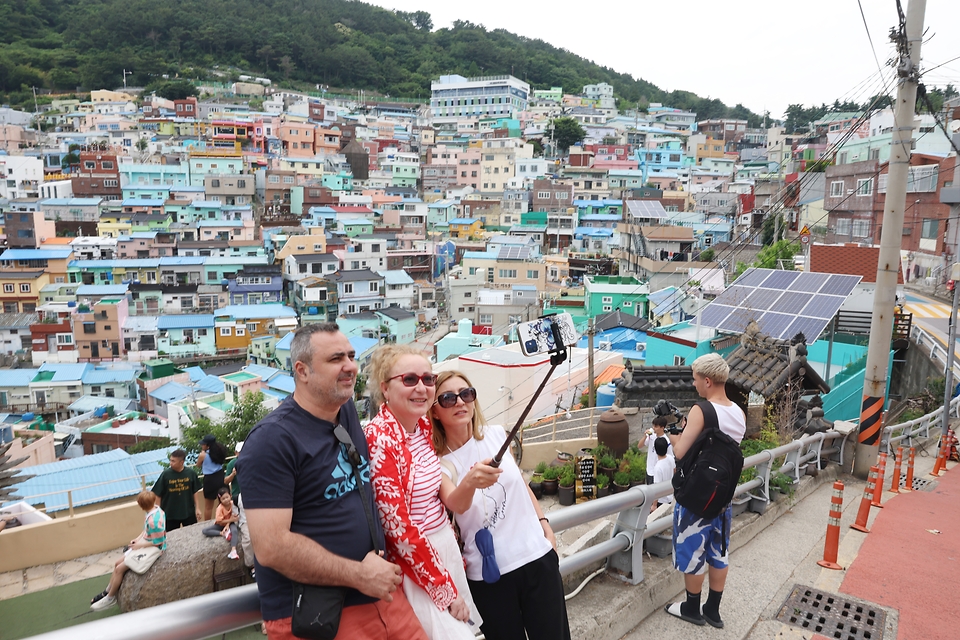
A policy coordination meeting chaired by Prime Minister Han Duck-soo on June 20 at Government Complex-Sejong announced measures to improve the management of foreign workers. Shown are tourists on June 17 posing for photos at Gamcheon Culture Village in Busan’s Saha-gu District. (Ministry of Culture, Sports and Tourism)
By Xu Aiying
To more effectively manage foreign workers, related ministries will produce mid- to long-term forecasts of supply and demand for each sector and a comprehensive management system for non-professional laborers will be set up.
These measures were announced on June 20 at a policy coordination meeting chaired by Prime Minister Han Duck-soo at Government Complex-Sejong in Sejong.
The measures aim to secure a stable migrant workforce and raise their utility. Based on the basic direction of user-centric and integrated management and stronger public responsibility, 42 tasks were selected in the fields of non-professional staff, professionals, international students in the country and workers in provincial areas.
For this, each related ministry will provide mid- to long-term forecasts of supply and demand for each sector to raise the predictability of the foreign workforce and promote consumer-centric labor policies. To comprehensively and flexibly respond to changes in demand for foreign workers on the labor market, a forthcoming comprehensive system will manage the number of non-professional migrants.
Instead of the relevant ministries, the Foreign Workforce Policy Committee will comprehensively coordinate the number of employment visas for such workers.
A single unified organization will link and coordinate similar policies on migrant workers and make effective decisions. Public responsibility for this will also be boosted by strengthening the management and supervision of private companies that introduce foreign workers to prevent unfair transfer costs and unauthorized departures.
The introduction of private companies will be institutionalized like setup of the qualification standards for private placement agencies and assessing and punishing them through specialized bodies. The supply of foreign laborers will be expanded through public management of seasonal employees who sign contracts with provincial branches of the National Agricultural Cooperative Federation to work on farms and in fishing villages.
Improvements to the system like providing incentives and easing visa issuance will seek to attract cutting-edge and specialized personnel and develop highly skilled workers needed in industry. The transfer of non-professional workers with the E-9 and E-10 visas to the category of skilled laborers with the E-7-4 visa will be expanded, plus the easing of transfer conditions will promote institutional streamlining.
To encourage graduating foreign students, who are limited to office and specialist jobs, to settle in provincial regions, the areas for their job searches will be enlarged to non-professional fields to provide more recruitment and training opportunities.
xuaiy@korea.kr























